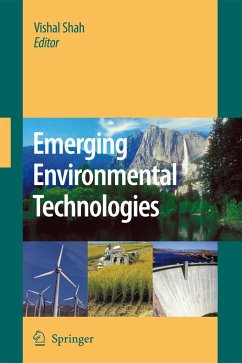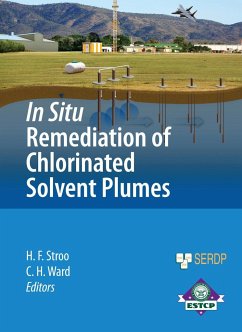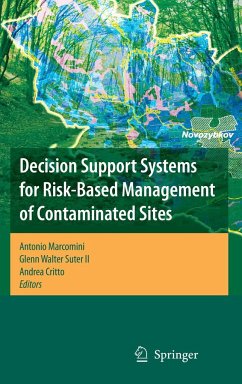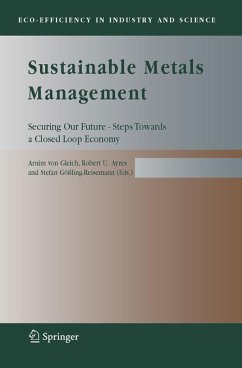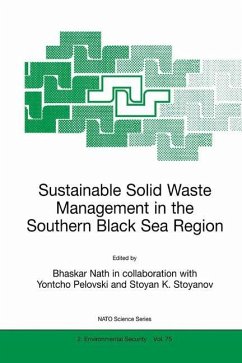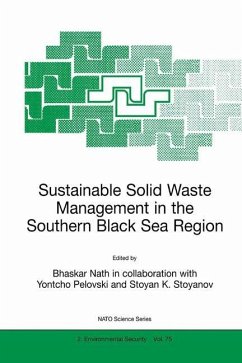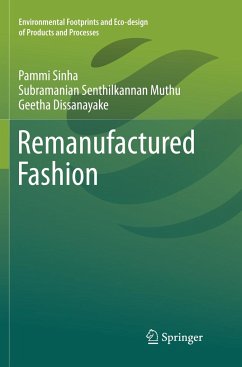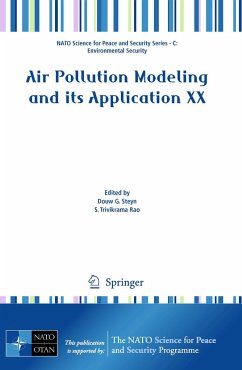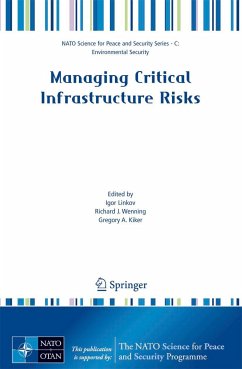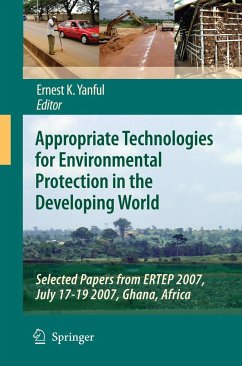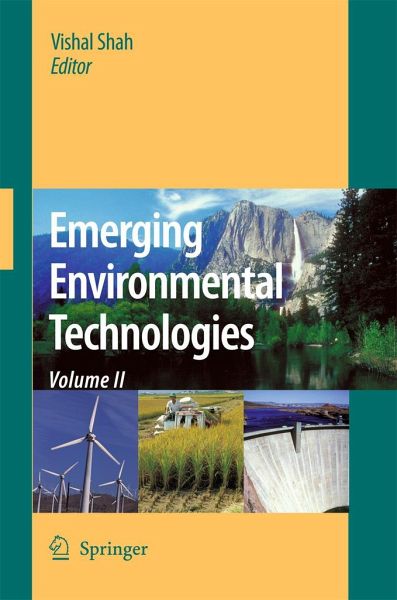
Emerging Environmental Technologies, Volume II
Versandkostenfrei!
Versandfertig in 6-10 Tagen
76,99 €
inkl. MwSt.

PAYBACK Punkte
38 °P sammeln!
Within the span of last couple of years, the increasing human interference with v- ious natural ecosystems and higher discharge of pollutants has presented numerous challenges to the society related to preserving the nature for a better tomorrow. The challenges also mount pressure on the scienti?c community to invent technologies that would provide solutions to the problems that are man made and also decrease the negative consequences that we are facing because of our own actions. This edited book attempts to present eight technological innovations that have shown potential to provide answers ...
Within the span of last couple of years, the increasing human interference with v- ious natural ecosystems and higher discharge of pollutants has presented numerous challenges to the society related to preserving the nature for a better tomorrow. The challenges also mount pressure on the scienti?c community to invent technologies that would provide solutions to the problems that are man made and also decrease the negative consequences that we are facing because of our own actions. This edited book attempts to present eight technological innovations that have shown potential to provide answers to a few challenges. Like the previous collection, the described innovations in the current volume also cover a range of areas including water and soil pollution, bio-sensors and energy. However, it is to be realized that no combination of technology can be enough to make a sizeable difference. As I said in my last collection, technological advances have to be integrated with a change in social behavior. The philosophy of sustainable development has to be the principle of future planning and growth. In this collection, I am pleased to include an article on noise pollution. Noise is a pollutant of our own behavior and can only be solved by a behavioral change. The change that is either voluntary or enforced by laws. As an environmental scientist noise is not normally a pollutant that would come in mind as a leading pollutant.





